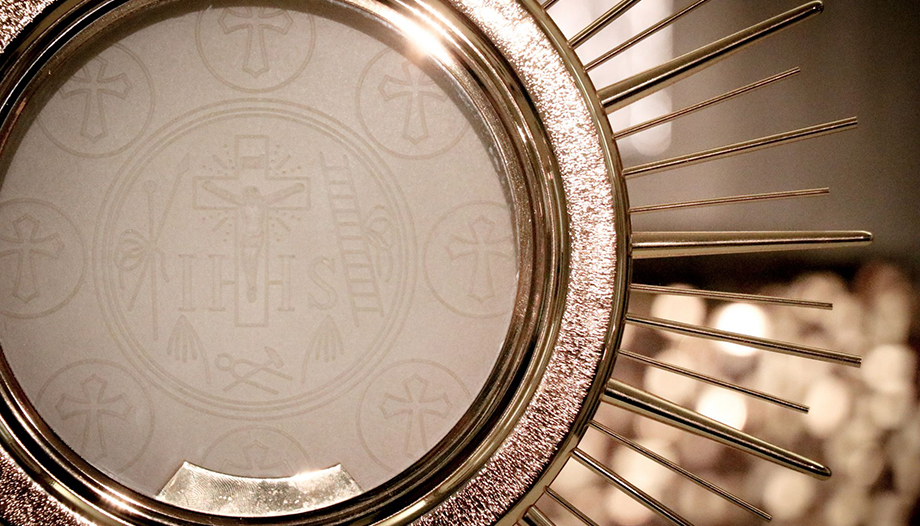I must have become a prude, but I recognize that I feel a shudder every time I hear the expression vulgar in its multiple versions and forms of conjugation of our language.
I admit that I used it when I was young, driven by fashions, until I began to be aware of what I was talking about.
It should not be forgotten that, although today it is part of the common informal language, its original meaning, outside the liturgical sphere, is none other than provocation, offense to God and, above all, to believers.
The truth is that most people who use the word as a crutch, especially the younger ones, no longer relate the term at all to its meaning as the body of Christ; and perhaps many have never even seen a consecrated form or know what that piece of bread means to Catholics.
To those who repeat it incessantly, consciously, for being transgressors, I would invite them to realize that society has changed a lot in the last decades; and that what is really transgressor would be to say something against any of the current dogmas, those that the culture of cancellation has made untouchable.
If they want to go from "poop-ass-fart-piss" to something more adult, let them think of a real politically incorrect swear word, because religion is irrelevant today. Then they could show off their boldness to their audience without looking like simple schoolyard badasses.
However, those who use the word in an abusive way ignore the fact that, by ridiculing the sacrament, they are in fact giving it glory or, at least, actualizing the passion of the Lord. For the word hostetymologically, it refers to the victim of a sacrifice. Jesus (present in the bread and wine) is the victim, the lamb of God who gave his life for the sins of the whole world. Handcuffed, slapped, spat upon, whipped, nailed to a cross, insulted... These moderns will not believe that they are the first to mess with Him!
In these days, thousands of consecrated hosts will walk the streets of our towns and cities on the occasion of the feast of Corpus Christi. They will make present, once again, in a public way, that sacrifice of Jesus on the cross for each one of us, also for those who insult and belittle him.
They do not know that, behind the apparent simplicity of a host, there is a real force that leads millions of Catholics to be living hosts, giving their lives for others: for their families, for their neighbors, in their professional activity, in the missions, or through that incredible ecclesial network of social initiatives: schools, hospitals, residences, prison volunteers, centers for the disabled, etc.
They do not know that this piece of bread is what gives meaning to all the work of Caritas, the largest institution that fights poverty in our country, with capillary presence in every neighborhood, in every town, and which is now celebrating its 75th anniversary. Caritas would not exist without the Eucharist, so to mock the Blessed Sacrament is to mock the feelings of the thousands of volunteers who accompany the people who suffer most in our country.
It is not about being offended, but it is worth remembering from time to time that respect for religious feelings is not only a sign of good education, but a necessity for coexistence, for democracy and for freedom of expression itself.
In the meantime, when we continue to hear the insulting expression, we can only repeat with Jesus on the cross: "Father, forgive them for they know not what they do". And truly, too.
Journalist. Graduate in Communication Sciences and Bachelor in Religious Sciences. He works in the Diocesan Delegation of Media in Malaga. His numerous "threads" on Twitter about faith and daily life have a great popularity.








